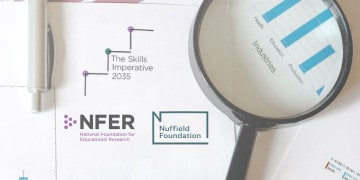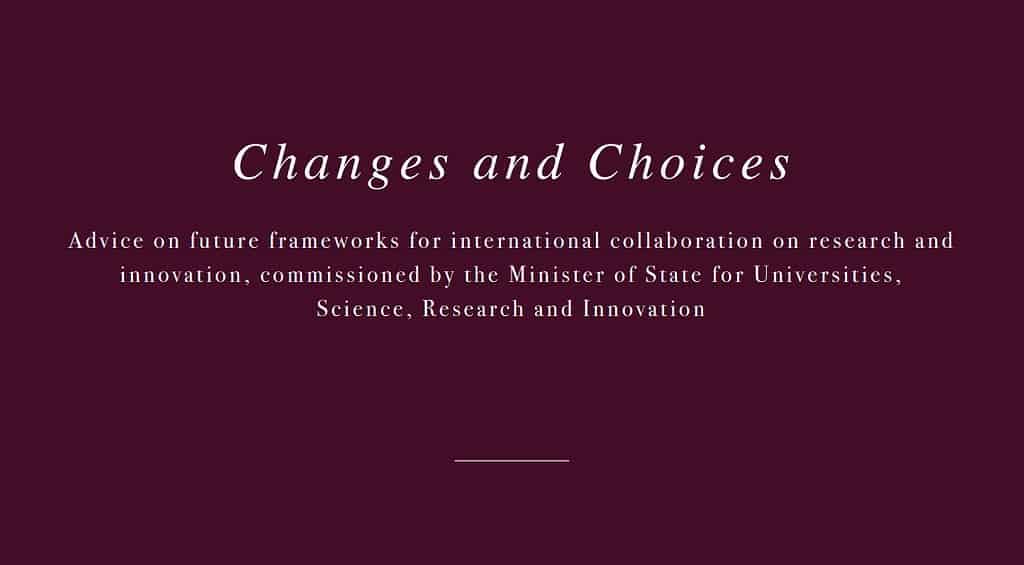Lily Ickowitz-Seidler, Primary Science Project Manager at the Wellcome Trust, introduces recently published research exploring science education in primary schools across the UK.
What is happening in primary science across the UK?
25 Oct 2017
Science should be exciting for young people, giving them skills and opportunities to improve their futures. But not all young people are inspired by science. Some don’t find it relevant to their own lives, or know the range of careers available. Wellcome wants to make sure that all young people in the UK have access to a world-class science education, and this starts in primary school.
Wellcome has launched a five year campaign to transform primary school science by:
- raising the priority of science in schools
- increasing the provision for science
- supporting teachers to deliver high quality teaching
We commissioned CFE Research to explore how science is being taught across the UK and to evaluate our progress and impact of the campaign. This research involved telephone ineterviews with 902 Science Leaders and online surveys of 1,010 teachers and 1,906 pupils from 49 schools across the UK, providing a baseline for primary science education. The key findings are discussed below.
Priority of science
We asked Science Leaders and Teachers how important they thought certain subjects were to their school Senior Leadership Teams. When asked about English, 83% thought it was ‘very important’ and 84% thought Maths was ‘very important’. However, when asked about science, this dropped to just 30%. Of those responding, 57% of Headteachers/Acting Headteachers or Deputy Headteachers stated that science was ‘very important’ compared to 25% of respondents in all other roles. These data clearly show that science has a low priority in many UK primary schools.
Provision for science
Science is taught in different ways across the UK. Overall, lower year groups receive fewer hours of science teaching, and the amount of science being taught increases as pupils become older. Where schools teach science on a weekly basis, science is taught for an average of one hour and 24 minutes across all year groups meaning that 58% of schools are teaching below two hours a week, which is the international weekly average for primary science teaching in similar nations.1 We believe two hours is the minimum time needed to teach primary science with the required level of depth and understanding to deliver the science curriculum.
When taking into consideration other methods of science teaching (such as science weeks and block teaching) in addition to weekly science, schools teach an average of one hour and 42 minutes of science per week, meaning that even when considering other methods, 54% of schools are still delivering under 2 hours of science per week.
Across the UK, 75% of schools deliver science on a weekly basis to all year groups in their schools, either through standalone lessons, cross-curricular teaching or a mix of both. Others provide weekly science lessons to some year groups within their school (13%) or deliver no weekly science to any year groups (12%). Standalone science lessons are more common for older year groups. Younger pupils, especially ages 4-5, are more likely to take part in cross-curricular learning.
Quality teaching
Teachers were asked what support their school had given them, if any, to improve their science teaching in the last 12 months. The most frequently reported methods were the school providing access to lesson plans and materials (34%), coaching or mentoring from their Science Leader (31%) and science training from their Science Leader (23%).
However, 30% of teachers reported that they had not received any support for science teaching from their school in the last 12 months. Perhaps unsurprisingly, schools in which the Science Leader/Headteacher had stated that science was ‘very important’ to the Senior Leadership Team had fewer unsupported teachers (14%) than schools where views of science ranged from ‘very unimportant’ through to ‘important’ (28%), highlighting the importance of the Senior Leadership view.
While only six per cent of teachers did not feel confident teaching science, 25% felt concerned that they might not be able to answer questions about science from their pupils. When asked about teaching particular areas of science, teachers found delivering evolution and inheritance (newly introduced to the curriculum), and electricity and forces the most challenging.
So what’s next?
We want to see pupil’s receiving at least two hours of high quality science per week. For this to happen teachers must receive support for science delivery and schools must prioritise science at a leadership level. To help support teachers through our Primary Science Campaign we have launched Explorify (explorify.wellcome.ac.uk/), our exciting free digital resource which provides a pathway of activities for primary school teachers to spark pupils’ curiosity and develop their thinking skills. We will be monitoring the impact of our campaign closely through additional qualitative and quantitative research.
1. The international average was 76/887 hours per year dedicated to science instruction (8.6% of all lessons were science). In England this figure was 6.1%, or 61/994 hours per year. We took the international average and the figure for England and divided these by the number of teaching weeks per year in England (at least 39 weeks). Using the international average gives a figure of 2 hours per week. Using the figure for England gives 1.6 hours per week.
Related articles

The Physiological Society’s policy team on the health challenges facing older workers and the urgent need to develop a strategy to ensure older people are happy and healthy at work.

Jo Reynolds, Director of Science and Communities at the Royal Society of Chemistry, on the RSC’s new summary report looking to unlock the potential of deep tech SMEs.

Lisa Morrison Coulthard, Research Director at the National Foundation for Education Research, on the Nuffield Foundation funded five year research programme providing insights into the essential employment skills needed for the future workforce

Sir Adrian Smith, Institute Director and Chief Executive of The Alan Turing Institute, and Graeme Reid, Professor of Science and Research Policy at UCL, set out the findings from their new independent report on international partnership opportunities for UK research and innovation